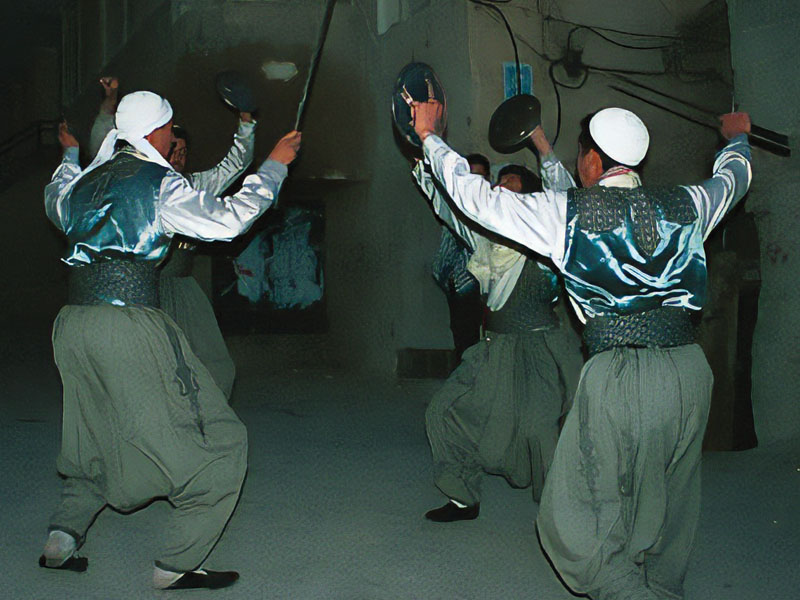Traditional songs of arabic weddings
Issue 12

Adil Albatosi (Egypt)
he research examines the aspect of the rich diversity created by the link of Arabic weddings with traditional songs. These songs are linguistically diversified all over the Arabic countries and within the same country. They are closely related with the rituals which precede the wedding and all other ceremonies.
The Arabic heritage is rich with folk songs which are performed during happy occasions and they mirror our historical and geographical reality. The songs also reflect the similarity of the details of the celebrations and their songs with slight differences which concentrate round the dialects of the songs.
The preparations for the night of the wedding slightly differ from an Arabic country to another. For example the betrothal which is accomplished after several rituals every ceremony is accompanied by songs and dances such as al Dabka, al Tahlielo and al Lewa, for instance.
The performance of these dances is accomplished by songs which are characterized by phrases preceded by octave rhythmically repeated. In some Arabic countries it is not allowed for the bride groom to see the bride or even talk with her what ever is the blood relation between them.
The scholars who studied folksongs which accompanied the ritual of the life cycle have highlighted the songs which are performed in the nagla or the dukhla, which is the climax of the rituals of the wedding. Every Arabic society has its own songs. Sometimes the song is performed in a single sound while in other times they are performed by either a chorus or coral which style of singing is call and responses and the harmony between the single sound and that of the group.



































































